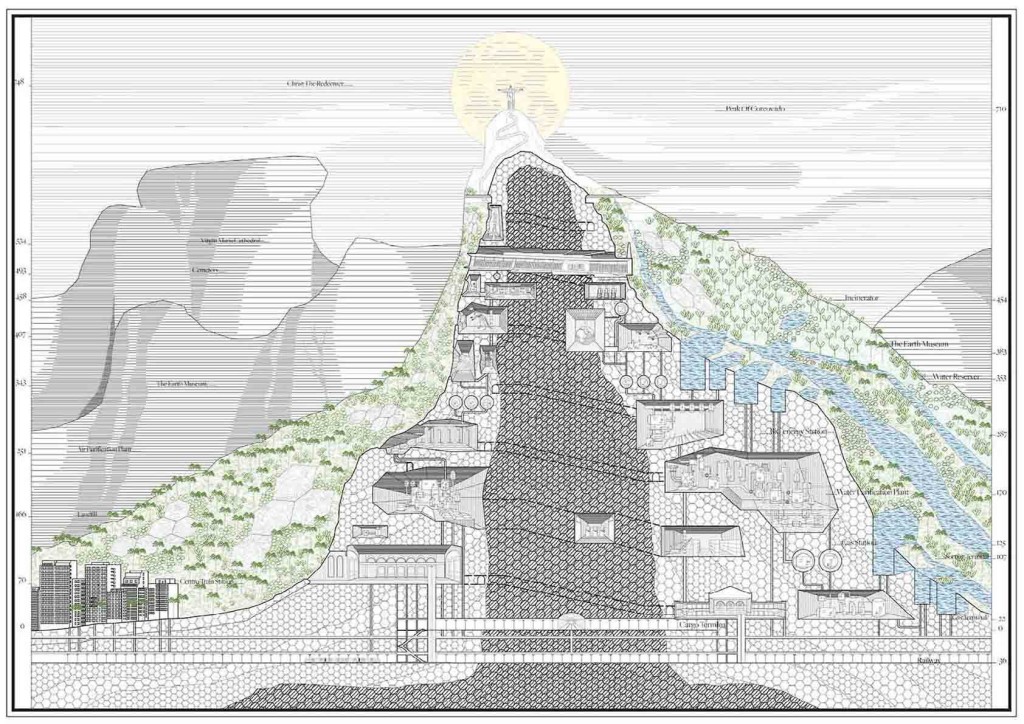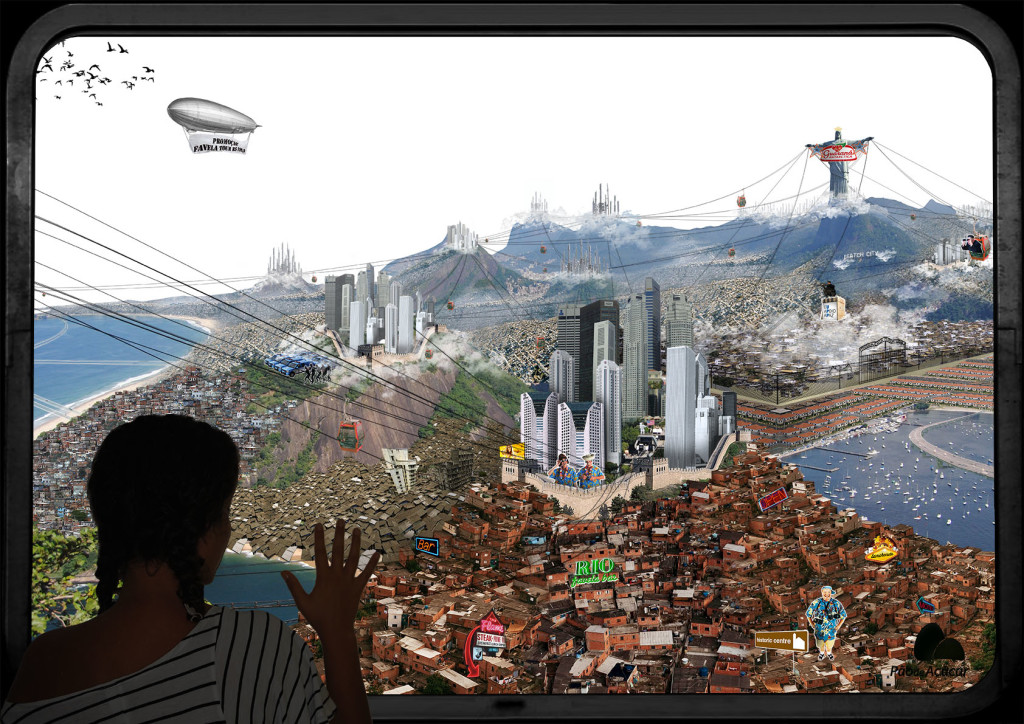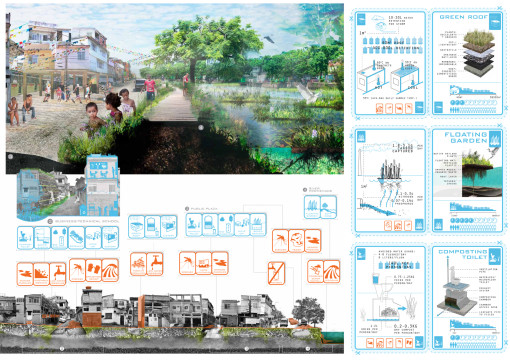Info:
Title: FROM OPEN SEWER TO OPEN (RE)SOURCE - Code: e21a1Contest: Rio de Janeiro / 2013
By: Lois Farningham - David Seiter - Leonel Lima Ponce - Kate Rodgers - Brett Kordenbrock - Rupal Sanghvi - Eric Rothstein - Ian Lipsky - Koung Jin Cho
Views: 4045 Likes: 2
Votes:
Alejandro Zaera-Polo 11 Jeffrey Inaba 5 Jeroen Koolhaas 5 Hernan Diaz Alonso 1 Cristiano Toraldo di Francia 9 Pedro Rivera 96.7
FROM OPEN SEWER TO OPEN (RE)SOURCE
No urban setting exemplifies current global human condition more than Rio de Janeiro’s informal communities, or favelas. Self-built and often ignored by government, these communities have been identified by their environmental and sociopolitical deficits. Faltering sewerage, water, and solid waste systems breed subhuman conditions, and are exacerbated by a lack of political voice. The upcoming 2014 World Cup and 2016 Olympics bring opportunity to Rio’s favelas via the Morar Carioca urbanization program; yet residents continue to be excluded from the planning and design of their communities. The resulting projects are top-down and heavy-handed approaches, concrete facelifts to the city’s image. Consulting with a team of design, science, and policy experts, favela residents can utilize existing frameworks and metrics to leverage their environmental and community assets, collaborating to provide mutual education opportunities that engage residents in the diagnosis of existing conditions, design of future visions, and implementation of physical projects. Partnerships across disciplines and communities yield an innovative and actionable set of solutions that galvanizes a positive transformation. With favela Pica-Pau as a testing ground, a Participatory Sustainable Infrastructure process considers community and ecosystem at each project stage. Investigative exercises including a Mapping Transect Walk and Community Visioning Workshop have been held to collect community-sourced data. Consultants adapt this data to available technologies; DIY methodology and flexibility of implementation leverage the temporal informality of a favela towards sustainable solutions. A set of Design Playing Cards profiles each infrastructural deficit and proposed systems, capitalizing on the modularity of sustainable technology to foster interaction between community and consultants. Each card details a specific deficit or solution, such as flooding or a green roof, along with metrics that convey impact and performance. During the game, deficit cards are matched with respective solutions; the latter are combined into “hands” representing performative and productive cityscapes such as an urban farm and a technical school. Using card game results, residents collaborate with consultants to build their own pilot installations, which are then monitored by citizen scientists to advocate for further improvements to city agencies. Larger proposals are located on Implementation Maps for future reference. Information gathered in this project is compiled into a Sustainable Infrastructure Catalog, a guide for replication and advocacy. Through iterative collaborative efforts with policy experts, scientists, and designers, favela residents compile transformative infrastructural systems, reasserting mutual engagement in the development of a community’s future. A flexible, efficient and holistic model for sustainable, healthy and prosperous urbanity in the 21st century emerges.
Related Posts :
Comments:
Info:
Title: FROM OPEN SEWER TO OPEN (RE)SOURCE
Time: 4 agosto 2013
Category: Rio de Janeiro
Views: 4045 Likes: 2
Tags: -








